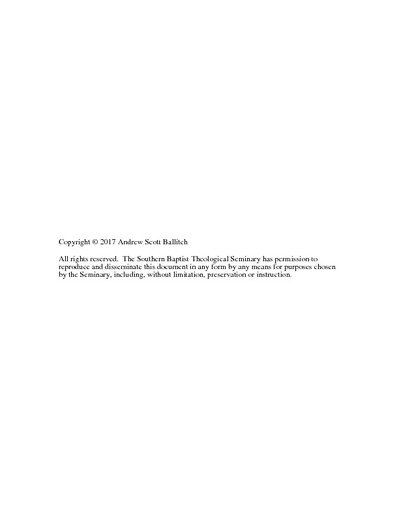| dc.description.abstract | William Perkins expounded Scripture throughout his works according to the method presented in The Arte of Prophecying. This intense scriptural focus emanated from Perkins’s belief that Scripture was God’s Word and the only adequate foundation for the reformation he sought for individuals, the church, and society. The fact that Scripture was God’s Word determined his hermeneutic—Scripture interprets itself. Though not reflected in most Perkinsian scholarship, Perkins consistently applied this method of biblical interpretation regardless of the genre in which he worked. Perkins pursued this strategy not only due to his convictions concerning Scripture, but also because he perceived the cause of further reformation as urgent during the reign of Elizabeth I.
Only the Word of God and its faithful exposition, exposition in line with the hermeneutical principles stated in The Arte of Prophecying, could accomplish the monumental tasks before sixteenth-century Puritans. Perkins, a Puritan, strove to transform an ignorant and immoral people, exhorting them to live up to the Reformation principles England had officially adopted. So in his preaching and practical works, he expounded Scripture. As a Cambridge man, Perkins played a role in educating the clergy for the vital pulpit and pastoral ministry. So in his practical works on ministry he explained Scripture. As part of the international Reformed community, Perkins was compelled to defend the precious doctrines of the Reformed tradition. So in his theological treatises he exposited Scripture. As one aware of the looming political threat the Church of Rome and its allies posed to England and the unsettled feel of the English Reformation, Perkins was obliged to defend his conception of the Christian faith. So in his polemics he explicated Scripture. The exposition of Scripture dominated all of Perkins’s endeavors, which challenges the perceived scholastic approach to theology in the post-Reformation Reformed tradition. Perkins was a creative man of his times who devoted his multifaceted career as preacher, teacher, theologian, polemicist, and popular author to the exposition of Scripture for the purpose of further reformation. | en_US |

